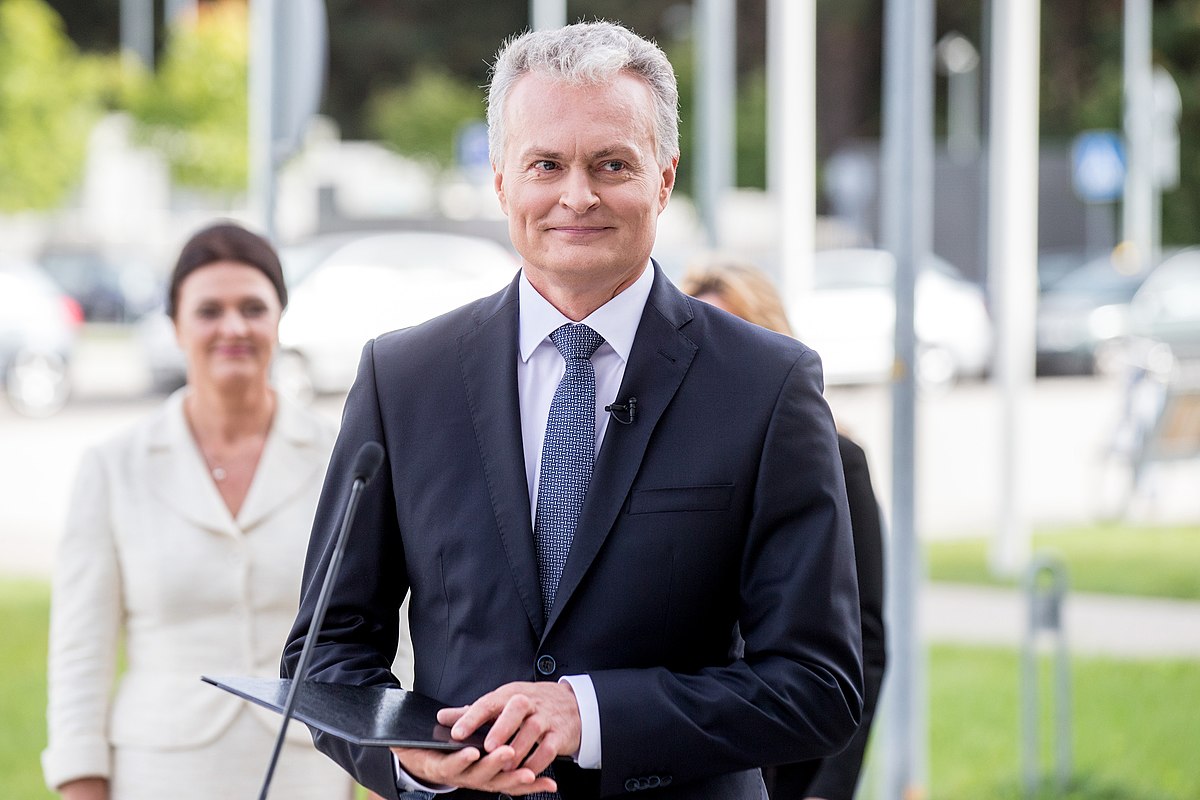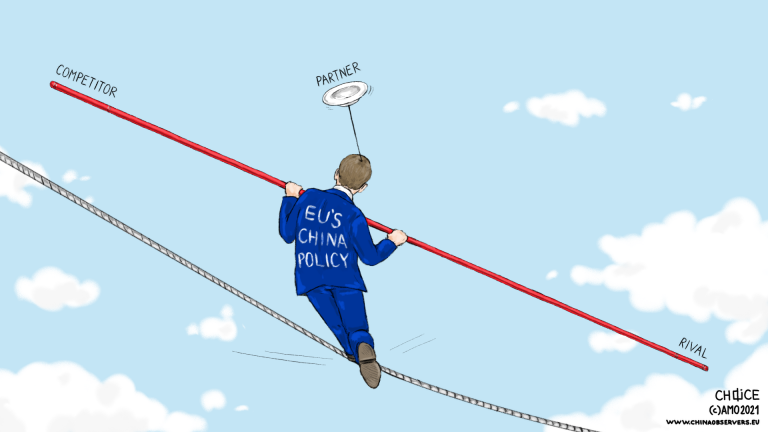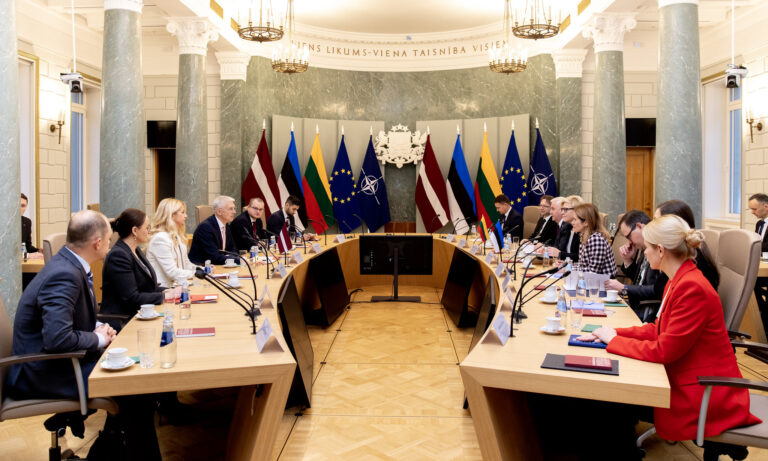
From its donation of 255,900 doses of COVID-19 vaccines to organizing a week-long parliamentary delegation to Taiwan, Lithuania has positioned itself as an early and reliable stalwart in the pursuit of closer ties between Europe and Taiwan.
Yet, when Gitanas Nausėda, the nation’s president, said that allowing Taiwan to open a representative office under its name – rather than the name of its capital, Taipei – was “a mistake,” observers began to consider whether Vilnius began to “wobble” in its approach. While experts suggest that Nausėda’s comments can be largely attributed to internal political rifts within Lithuania, as he is a rival of the incumbent Prime Minister Ingrida Šimonytė, with whom he squared off in the second round of presidential elections in 2019, the remarks cannot be ignored.
Irrespective of the motivations behind it, Nausėda’s statement reflects the volatility in relations between Taiwan and Lithuania.
On top of horizontal contestation within the nation’s political scene, the current government continues to face vertical contestation from the public. A December 2021 opinion poll, commissioned by the Lithuanian Foreign Ministry showed that 60 percent of the respondents negatively evaluated the nation’s “value-based policy” towards China. Thus, broad coalition-building constitutes a key outstanding task in ensuring the sustainability of the recently expanded ties between Taiwan and Lithuania.
Semi-Presidentialism and Its Discontents
“The name of the office became a key factor that now has a very strong impact on our relations with China,” President Gitanas Nausėda said in his January 4 interview with Žinių Radijas. “I believe the name was the spark, and now we have to deal with the consequences,” he added.
Perhaps unsurprisingly, President Nausėda’s comments attracted considerable attention from the Taiwanese and Chinese media and the public. While Joanne Ou, Taiwan’s Foreign Ministry spokesperson, refused to respond to the Lithuanian president’s statement, some users of the popular discussion board PTT declared Nausėda’s comments “a collapse of green terrorists” (塔綠班崩潰), implying a failure of the ruling Democratic Progressive Party’s foreign policy. Meanwhile, China’s Global Times asserted that Nausėda’s acknowledgment “doesn’t cut it,” as it is yet to be known whether Vilnius will “correct the mistake.” The lengthy hashtag “Lithuania acknowledges the big impact of the deterioration of Sino-Lithuanian relations” (#立陶宛承認中立關係惡化對立影響很大) is also trending on the popular social network Weibo.
The President’s words about Taiwan carry weight. According to a November 2021 opinion poll commissioned by the Lithuanian news agency ELTA, Gitanas Nausėda is among the most respected politicians, enjoying an approval rating of 65 percent. As the Lithuanian public remains on the fence about the government’s policy towards Taiwan and China, his reserved stance may turn the public even more skeptical of Vilnius’ pivot to Taipei.
Yet, Nausėda’s statement can be viewed as a manifestation of domestic political competition rather than a shift in the foreign policy direction of the nation. Lithuania is an example of a semi-presidential regime, which provides fertile ground for intra-executive conflicts between the president and the government.
Tensions between Nausėda and Šimonytė related to foreign policy did not start with the expansion of Lithuania’s ties with Taiwan either. Rifts became particularly conspicuous in March 2021, when the Homeland Union (TS-LKD), the largest party in the Seimas, launched an initiative to have the prime minister replace the president as Lithuania’s representative at the European Council (EC). Critics of this proposal asserted that the Homeland Union was applying double standards, as they had previously backed President Dalia Grybauskaitė’s (whom the party supported in the 2009 and 2014 elections) participation in the works of the EC.
Later in the year, Lithuanian media speculated that the strife between Nausėda and Šimonytė continued, as the two politicians had not met for over two consecutive months. The media coverage goes to show that in the context of Lithuania’s semi-presidential democracy, where intra-executive coordination takes many forms but remains largely informal, personalistic factors play a significant role. In this case, they can cause a lack of coordination over foreign policy issues between key political players.
Opposition Challenges the Precedent
However, the president is not alone in questioning the assertive foreign policy of the ruling coalition. Following Nausėda’s comments, the shadow government of the Lithuanian Farmers and Greens Union (LVŽS), the second-largest party in the Seimas, issued a statement calling on the government to rename the Taiwanese Representative Office in Vilnius. Moreover, it called upon the parliament to adopt a resolution reaffirming Lithuania’s adherence to a One-China Policy.
The stance of the LVŽS can be attributed to two main factors beyond sheer opposition to the current government. Firstly, with cereal constituting Lithuania’s largest export to China, the nation’s agricultural and food industries have been severely affected by Beijing’s economic coercion. Secondly, policy legacies matter – the expansion of economic relations between Vilnius and Beijing was a major achievement of the LVŽS government led by Saulius Skvernelis between 2016 and 2020.
LVŽS’ shadow foreign minister Giedrius Surplys served as the Minister of Agriculture from 2018 until 2019. During his tenure, he oversaw an unprecedented opening of the Chinese market to agricultural and food products from Lithuania. Within the scope of the 17+1 framework, the previous government also organized the 3rd China-CEECs Agricultural Ministers’ Meeting and the 13th China-CEECs Agro-trade and Economic Cooperation Forum in May 2018.
Previous efforts to crack the Chinese market also explain some of the disillusionment over the current policy on Taiwan and China expressed among Lithuanian entrepreneurs.
The current policy trajectory marks a considerable departure from the approach to China adopted by the governments of Skvernelis and his predecessor from the Social Democratic Party (LSDP), Algirdas Butkevičius. The stark and swift shift left many entrepreneurs feeling like they had not had sufficient time to redirect their businesses before they were hit by Chinese coercion. In short, better timing and telegraphing of the intentions could have helped to avert some present discomfort among businesses.
Importantly, members of LVŽS have not been the only opposition politicians to speak up against the current China policy. Pointing out insufficient communication from the ruling coalition, LSDP’s chairwoman Vilija Blinkevičiūtė said that, “in cooperation with the EU and other international partners, Lithuania could correct the mistake and consider changing the name of the mission to Taipei.”
“Teamwork may not be the strongest suit of the ruling coalition, so some grievances by the President or opposition parties may have been justified, especially regarding the domestic processes or coordination of actions,” said Dovilė Šakalienė, a Member of National Security and Defense Committee in the Seimas, representing LSDP. “Still, it’s vital to filter out the noise of domestic disputes, political ambitions, and tensions between power branches. Otherwise, in combination with complaints from certain businesses and brow-beating by some experts, it creates an atmosphere of confusion for at least part of the public. The PRC is happily kindling the fire,” added Šakalienė.
Path Forward
The current tensions are unlikely to lead to a major shift in the direction of Lithuania’s policy, as capriciousness in Vilnius’ engagement with Taipei and Beijing could bring considerable damage to its international reputation. At the same time, the ongoing domestic disagreements demonstrate that relations between Lithuania and Taiwan still lack stability and sufficiently broad domestic consensus.
Considering the rifts within Lithuania, it is imperative that both Vilnius and Taipei take concrete steps to proactively and effectively communicate future policy direction and its possible implications to diverse stakeholders.
On the Lithuanian side, ‘teamwork’ will remain key. The government should strive to overcome partisan divides in foreign policymaking and actively engage the presidency and parliamentary parties in the opposition. Additionally, businesses should be reassured that the government can cushion the impact of Chinese coercion. The Šimonytė’s cabinet is currently mulling an aid package for companies hit by China. At the same time, open and productive conversations with the business sector are necessary; coalition politicians would be well advised to avoid dismissing entrepreneurs’ concerns as mere “PR play” to avoid exacerbating domestic tensions.
Taiwan also has an important role to play. From purchasing some Lithuanian exports halted by Chinese customs to opening its market to Lithuanian grain, Taipei demonstrated that it is serious about expanding trade relations with Lithuania. The launch of a $1 billion credit program to help fund joint projects between “strategic industries” is also a strong signal that Taiwan is serious about its promises of investment and facilitating Lithuania’s plan to develop “world-class science.” At the same time, as Taiwan literacy remains low in Lithuania, the country ought to ramp up its people-centric outreach through initiatives including scholarships and B2B exchanges.
“What matters now is that we don’t let the PRC win the divide and conquer game either nationally or internationally. There is a temptation to focus on the victim and put their actions under a magnifying glass. Instead, we should focus on the bully,” asserts Šakalienė.
Foreign policy does not operate in a vacuum – it is susceptible to domestic factors, including disagreements. As the current government in Lithuania moves forward with its policy towards Taiwan and China, it should view the ongoing dispute as a key lesson in policy coordination and crisis communication.
Written by
Marcin Jerzewski
yehaoqinMarcin Jerzewski is the Head of Taiwan Office of the European Values Center for Security Policy. He is also a Marcin Król Fellow at Visegrad Insight. Marcin earned his Bachelor of Arts in Political Science and Chinese Studies at the University of Richmond and was an MOE Taiwan Scholar in the International Master’s Program in International Studies, National Chengchi University.


